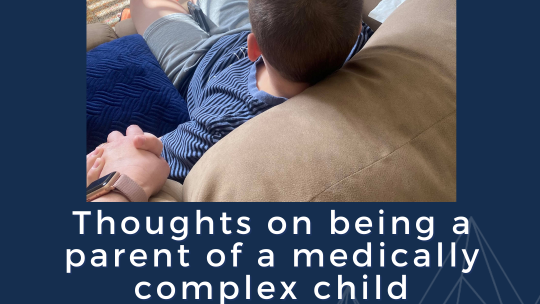
On Reaching Out for Support at the Start of PANS PANDAS Symptoms
I have had the privilege of getting to know Cici a little bit this year, and we had chatted about her sharing part of her PANS PANDAS BGE experience with...

I have had the privilege of getting to know Cici a little bit this year, and we had chatted about her sharing part of her PANS PANDAS BGE experience with...

ASPIRE has signed a letter to Congressman Schrader and Congressman Kinzinger to support the BIOSIM Act. This act would accelerate patient access to new biosimilar treatments by providing a temporary...
Murciano M, Biancone DM, De Luca F, Piras MD, Guido CA, Spalice A. Breastfeeding in Pediatric Acute-Onset Neuropsychiatric Syndrome: An Italian Observational Study. Frontiers in Pediatrics. Vol 9. 2021. DOI:10.3389/fped.2021.682108
DIAGNOSTICS, DIFFERENTIAL DIAGNOSTICS AND TREATMENT OF PANDAS SYNDROME: DESCRIPTION OF THE CASE. Mukhtorjonova Khusnigul Nodirbekovna, Elmurodova Zarina Aslanovna. Matkarimova Dilnoza Doniyorovna, Tashkent Pediatric Medical Institute. ISSN: 2776-0960 Volume 2, Issue 6, June 2021
The analysis of this clinical case demonstrates the existence of a group of patients with a good therapeutic response to the administration of immunoglobulins and antibiotics. The mechanisms of development and course of this condition are not fully understood and require further research.

Join ASPIRE in donating plasma today to help minimize the shortage affecting PANS patients across the country. Donate plasma today! ASPIRE can help you set up the easiest plasma drive....

The endless advocating is always 100% worth...

You are your child’s best advocate, and we are here to help! The 504 and IEP planning process may seem overwhelming, but these educational sections will help you navigate the...

Read Getting Started with 504 & IEP Plans first. Many PANS PANDAS kids will qualify for a 504 plan. A 504 plan will provide accommodations for the educational program within...

Read Getting Started with 504 & IEP Plans first. Special Education is provided through the Individualized Education Program (IEP) for a student with a qualifying disability. The primary purpose...

How to Ask for an Evaluation Written Request – Put all requests and correspondence in writing. Ask for an evaluation and explain why Provide medical documentation of diagnosis and supporting...

Prepare for an IEP or 504 Planning Meeting Create a list of your child’s areas of need. Before the meeting, list your child’s struggles and deficits. Know that it is...